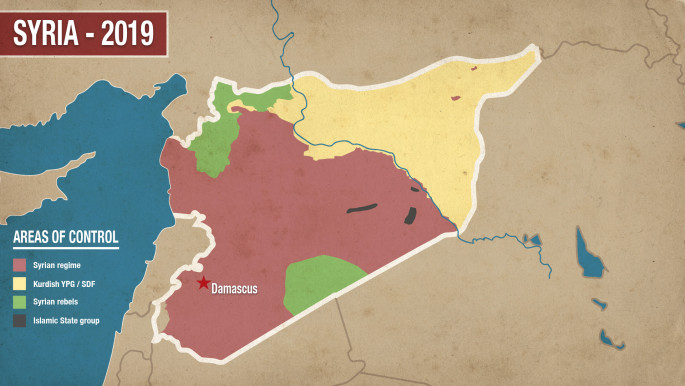US-backed SDF denies selling Syrian oil to Israel
The Kurdish-led Syrian Democratic Forces (SDF) has denied selling Syrian oil to Israel while the Bashar al-Assad's regime has stuck to the accusations - accusing the Kurdish-Arab coalition force of "treachery".
Riad Darrar, the joint chairman of the SDF, said that the reports of co-chair Elham Ahamed authorising the Israeli businessman Motti Kahan to represent the council in oil sales are fabricated and false.
"Elham Ahmed is not authorised to sign documents," Darrar told Russia Today.
Darrar said these media reports come amid "fabrications on the part of Turkey, and the regime and its followers, to pollute the image of the SDF".
The allegations were first reported by Lebanese newspaper Al-Akhbar, reportedly based on a letter from Ahmed to Kahana agreeing that his company would represent the SDF in oil-related matters.
The Israeli entrepreneur has denied facilitating the sale of Kurdish oil, Israel Hayom reported, but said he has worked to prevent oil exports to Iran.
"It's important for me to explain that I do not serve any side in this story because I have one goal - for Syria to be democratic, free and live in good neighbourliness with Israel. I don't serve Israel, I am an American citizen, but everyone can benefit from this," Kahana told Israel Hayom.
"The Kurds currently hold 11 oil wells in an area controlled by the [Syrian] Democratic Forces. The overwhelming majority of Syrian oil is in that area. I don't want this oil reaching Iran, or the Assad regime. I want Assad to bike to work," he added.
The SDF have been one of the main driving forces in defeating the Islamic State group in Syria, and seized control of strategically important areas such as al-Hawl and Raqqa.
Control of Syria's vast oil reserves is split between the regime and the SDF. The US-backed SDF control Syria's largest oil field in Al-Omar in the eastern province of Deir Ezzor, as well as the nearby Tanak and Jafra fields.
They also hold the Rmeilan field in the northeastern province of Hassakeh, as well as other smaller ones there and in the northern province of Raqa.
 |
Agencies contributed to this report.
Follow us on Twitter: @The_NewArab




 Follow the Middle East's top stories in English at The New Arab on Google News
Follow the Middle East's top stories in English at The New Arab on Google News

![A group of Palestinians, foreign and Israeli activists gather to participated in an olive picking event on the land in the town of Battir, which is under threat of confiscation by Israel in Bethlehem, occupied West Bank on 8 November 2024. [Getty]](/sites/default/files/styles/image_330x185/public/2182930803.jpeg?h=199d8c1f&itok=__0LgGsa)
